The Health Finance Coalition (HFC) recently worked with Be Girl, an innovative social enterprise changing the way menstrual health is addressed in Africa, to secure a new $500,000 investment from Grand Challenges Canada (“GCC”). Together, Be Girl’s CEO & Founder, Diana Sierra, GCC’s Equity Investments Lead, Brishan Rowjee, and HFC’s Swathi Rao discuss the step-by-step process of the deal’s transaction construction to expand access to Be Girl’s innovative products across Africa.
What health challenge do you aim to solve and how does Be Girl address it?
SIERRA: The health challenge Be Girl aims to address is menstrual health inequality, which encompasses both a lack of access to affordable, high-quality menstrual products and inadequate menstrual health education. These barriers often lead to girls missing school, feeling ashamed of their bodies, or facing long-term health risks. Be Girl addresses this by designing and distributing reusable, dignified menstrual products and by developing educational tools that help girls understand their bodies and make informed choices about their health. We believe that when girls have both the tools and the knowledge, they gain the confidence and opportunity to thrive.
Why was Be Girl interested in seeking more capital?
SIERRA: Be Girl is seeking more capital to scale what we already know works: high-quality menstrual products paired with impactful education. As a social enterprise, we maintain low margins to ensure affordability, but this limits our ability to invest heavily in growth. After testing and learning from a direct-to-consumer model in Mozambique, we pivoted to a business-to-business approach (partnering with governments, UN agencies, and NGOs), which has proven far more sustainable and impactful. To date, we’ve distributed over a million products and reached over 530,000 youth with menstrual health education. But we know that’s not enough. Our goal is to reach 1.2 million youth by 2030, and to do that, we need to scale faster and more efficiently. With additional capital, we can make that leap, transforming education delivery and reaching the next generation with tools that promote dignity, equity, and menstrual health literacy worldwide.
Could you walk us through the transaction construction support you received from HFC?
SIERRA: The Health Finance Coalition played a pivotal role in helping Be Girl become investment-ready to unlock new financing from GCC. While we had a strong track record in product design and implementation, we needed support to present our financials, growth model, and impact metrics in a way that would resonate with investors. HFC provided hands-on coaching in areas such as refining our financial projections, preparing investor materials, and stress-testing our business model. Just as importantly, they brought sector expertise, helping us articulate our value proposition within the broader health and gender equity landscape. This wasn’t just technical assistance: it was transformative. We were one of three companies selected to receive this support, and it positioned us to successfully close the transaction with GCC and prepare for long-term, scalable growth.
What did you learn through the process?
SIERRA: One of the most important lessons we took from this process was the critical role that financial sustainability plays as a business begins to scale. As a founder with a background in industrial design, I had deep expertise in product development and user needs, but less exposure to the financial frameworks needed for investor confidence and long-term growth. Through the Health Finance Coalition’s support, we gained a deeper understanding of our business from an investor’s perspective, asking and answering questions such as: What should our margins look like? What’s our true cost of goods sold? What does our growth model look like at scale? That insight was transformational. HFC’s support wasn’t generic; it was precise and high impact, more like a tailored consultancy than a typical incubator. We didn’t just leave with a pitch deck; we walked away with a stronger, more financially resilient business model. We also recognized the importance of generating more evidence to strengthen the case for investing in menstrual health. With partners like GCC, who are committed to long-term impact, we’re building momentum. But it’s clear that attracting more investors to this space will require continued proof of impact and commercial viability, and we’re now better equipped to deliver both.
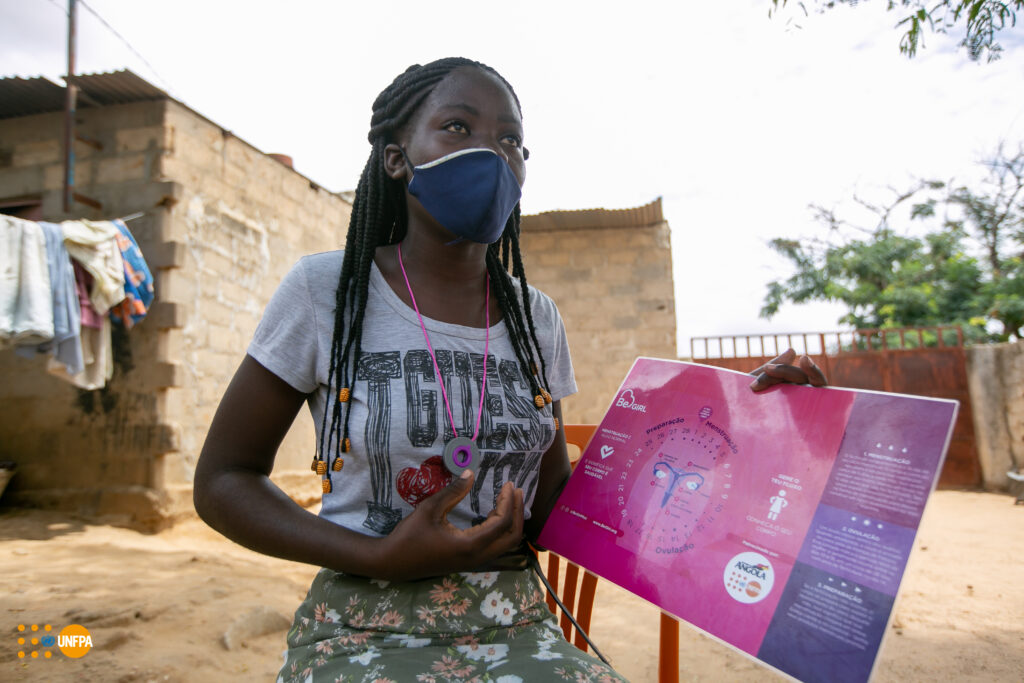
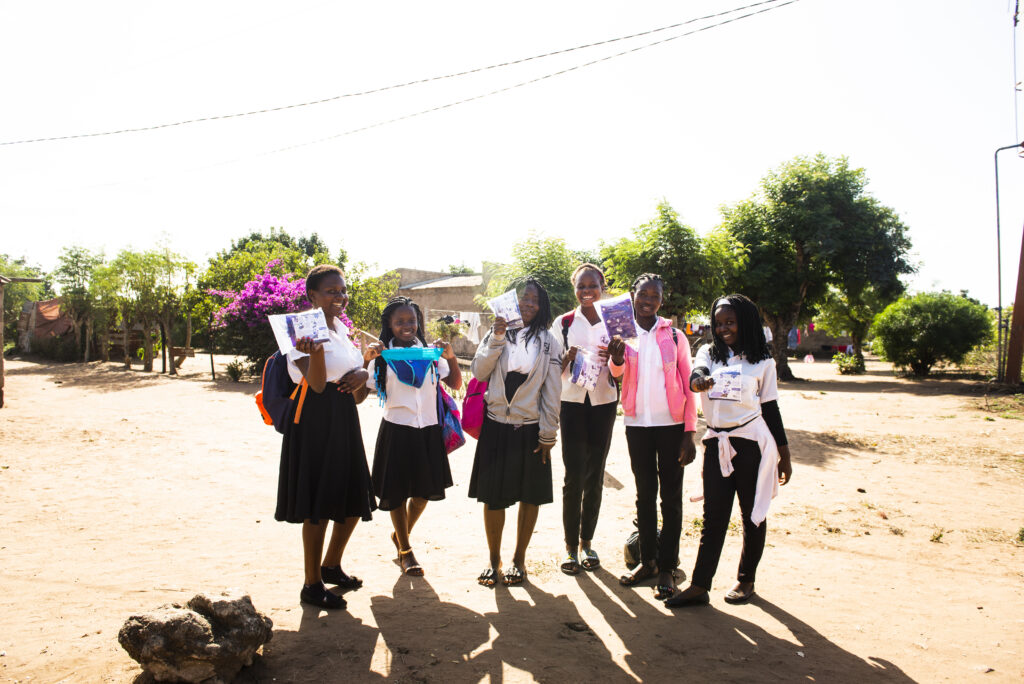
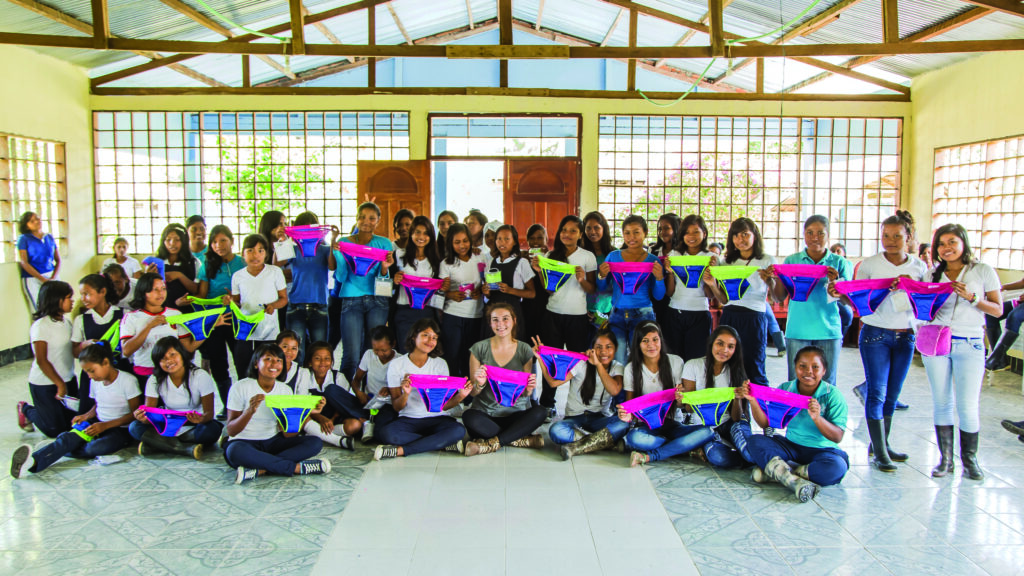
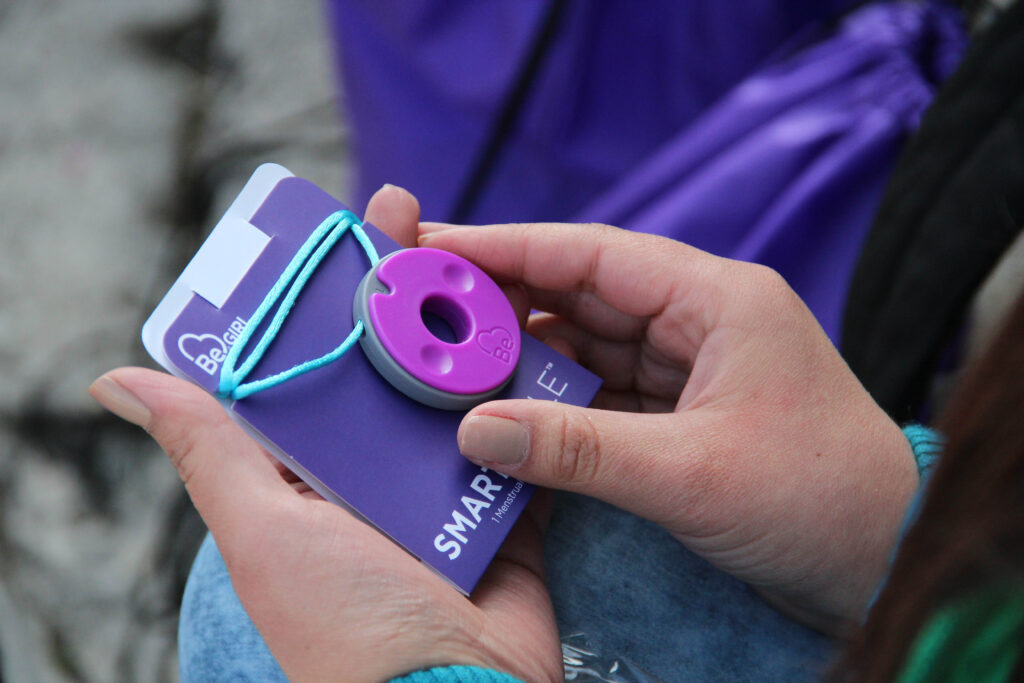
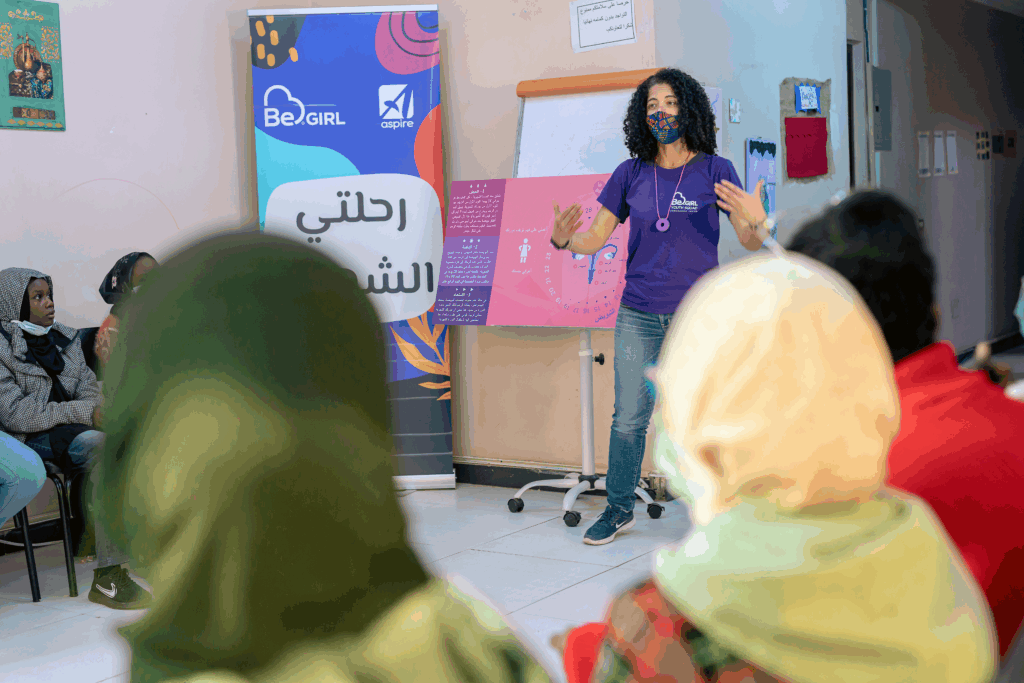
What attracted GCC to Be Girl?
ROWJEE: GCC has been a long-standing partner to Be Girl, supporting their mission since 2018 with early grants aimed at launching and expanding operations in Mozambique. This partnership reflects our broader commitment to advancing menstrual health and backing innovative solutions in the sector. Since our initial investment, Be Girl has made impressive strides, scaling its impact well beyond Mozambique with initiatives in Angola, Ghana, and Egypt. Its impact profile remained strong, with over 1 million menstrual products sold, more than 530,000 youth educated, and five impact studies conducted by the time we considered a reinvestment in late 2024. In May 2025, GCC provided a new catalytic equity investment of $450,000, along with an additional $50,000 in technical assistance funding. This capital will support strategic hires across the organization, accelerate advancements on their online education platform, and launch a Zimbabwe pilot. We’re proud of the progress Be Girl has made and excited to continue our journey together, deepening our partnership to help scale their impact and reach even more communities across Africa.
What factors was GCC looking at to consider an investment with Be Girl?
ROWJEE: We begin every investment conversation with impact. Our lens is always: how many lives will this opportunity reach and improve, and which communities will it serve? Be Girl stands out as a menstrual health innovator that is deeply aligned with our strategy, values, and long-standing commitment to improving women’s health. As mentioned, Be Girl has a strong impact profile with significant lives reached and improved. From a business model perspective, Be Girl’s strength lies in its ability to deliver across the entire value chain by shaping national curricula in collaboration with governments, deploying multilingual educational platforms, and ensuring product access in underserved communities. We’ve also been impressed by their ability to pair innovation with adaptability, successfully shifting from a direct-to-consumer approach to a more scalable business-to-business model. Their leadership was another key strength. With a resilient CEO and a strong team supported by strategic governance and mission alignment, Be Girl has built the capacity needed to grow responsibly and sustainably. As they enter this next chapter, they do so with solid fundamentals, diversified revenue streams, and a healthy growth pipeline.
What will GCC be monitoring or looking for moving forward?
ROWJEE: At GCC, we define success by the real-world impact our investments deliver. We’ll be looking closely at how many products are reaching the hands of those who need them, which communities are being served, and how effectively education is being delivered, particularly in schools. It’s not just about reach, but relevance and equity. Together with Be Girl, we co-develop a clear impact plan and continue to track progress year over year. The goal is to ensure that every dollar we invest contributes to meaningful, measurable change in people’s lives.
What was the role of HFC?
RAO: The project initially began with Be Girl aiming to expand into the MENA and West Africa regions but needing extra capital. We started by doing market research to assess the areas where they wanted to grow and look at the feasibility. From there, HFC worked with Be Girl to refine and enhance their investment pitch deck, highlighting the economic and sector dynamics featuring the countries where they aimed to expand. HFC also helped put together the financial plan. But as the project progressed, HFC recognized there were shifts in the competitive landscape, so instead of prioritizing geographic location, HFC helped Be Girl shift its focus to retaining its existing market share and deepening penetration in its current markets. But that shift also required not only operational adjustments but a reassessment of the financial implications. HFC worked with Be Girl to design a new financial strategy and help to attract investor interest. As a result, HFC was able to help Be Girl demonstrate its ability to adapt to market conditions while maintaining a compelling growth narrative, which strengthened its investment appeal to GCC. Today, we are thrilled that Be Girl has successfully secured a new, substantial investment from Grand Challenges Canada to expand access to their innovative products across Africa. This investment from GCC allows Be Girl to enter a new phase of growth – one that will expand access to Be Girl’s innovative products and life-changing education programs across multiple countries in Africa. As Be Girl puts it, their work is about more than just products – it’s about giving girls power, voice and opportunity. We are proud that with continued support from mission-aligned partners like GCC, Be Girl is well on its way to achieving that vision—one girl, one classroom, one country at a time.
###